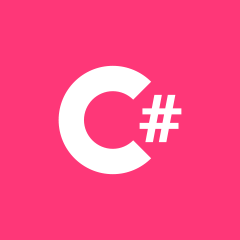如何在C#中使用Json.net解析未知的Json文件
我可以使用获取动态 Json 对象
dynamic obj = JsonConvert.DeserializeObject(json);
看起来是一个嵌套的对象结构
我需要绘制 json 文件中的每个变量的图表,但 json 文件结构经常发生变化
有没有办法使用嵌套的 foreach() 语句来解析这个结构?如果没有,我可以通过像字典一样的字符串访问每个元素来解析它吗?
例如:
if(obj["Item1"]["Parameter3"]["Value2"]` != NULL) int number = obj["Item1"]["Parameter3"]["Value2"]`
谢谢,
 杨__羊羊
杨__羊羊浏览 395回答 2
2回答
-

一只甜甜圈
是的,有一个用于动态查询的 API。代码看起来像这样:JObject rss = JObject.Parse(json); var postTitles = from p in rss["channel"]["item"] select (string)p["title"]; -

POPMUISE
终于搞清楚这个api了一些 JToken 条目具有值列表,其他条目具有名称和值。在解析之前,您必须先对哪个是哪个进行排序。这将创建一个包含 Json 文件中每个条目的字典 void SomeFunction() { Dictionary<string, decimal> json_data = new Dictionary<string, decimal>(); dynamic json_obj = JsonConvert.DeserializeObject(json); Linearize(ref json_data, json_obj); } void Linearize(ref Dictionary<string, decimal> input_dict, JToken json_data, string key = "") { int i; if (json_data != null) { if (json_data.HasValues) { i = 0; foreach (dynamic entry in json_data) { //Add a Name field if it exists Type typeOfDynamic = entry.GetType(); if (typeOfDynamic.GetProperties().Where(p => p.Name.Equals("Name")).Any()) key += entry.Name + "."; //If JToken is an Array if (((JToken)entry).HasValues) { Linearize(ref input_dict, entry, key + "[" + i++ + "]" + "."); } //If JToken is a data type else if (entry.Type == JTokenType.String || entry.Type == JTokenType.Float || entry.Type == JTokenType.Integer) { decimal output; if (decimal.TryParse(entry.ToString(), out output)) input_dict.Add(key + "[" + i++ + "]", output); } } } } }
 随时随地看视频慕课网APP
随时随地看视频慕课网APP
相关分类


 C#
C#